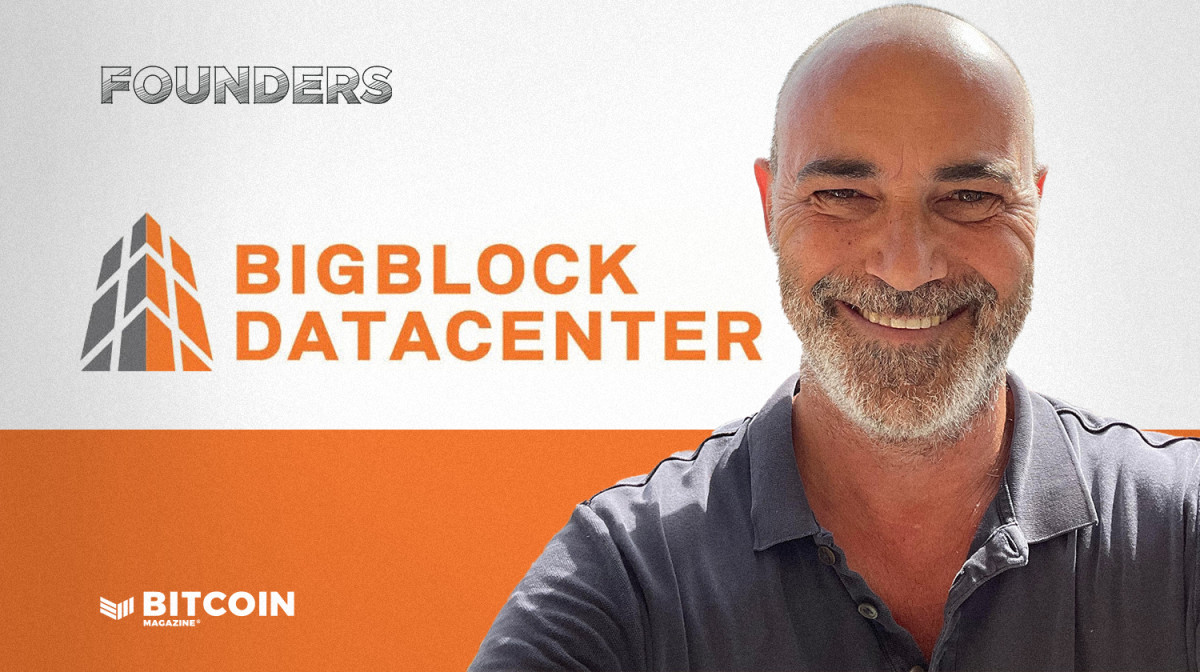Listening to Sébastien Gouspillou share stories from the past eight years of his international life as a Bitcoin miner, it’s difficult to believe he’s telling the truth.
Each of his tales come across as works of fiction in which he, often compelled by little more than blind faith and a desire to utilize cheap energy for Bitcoin mining, comes out on top after struggling through soul-shaking trials and tribulations.
And what’s perhaps most mystifying is that he tells many of these stories while smiling from ear to ear, beaming with a certain radiance that comes from having an indefatigable spirit (except for when he tells parts of the stories where others are hurt, wronged or killed; at those points he grows somber).
To quickly provide an overview of his journey, since 2017, the 55-year-old citizen of France and co-founder of BigBlock Datacenter, a Bitcoin mining company, has traversed the planet. From former Soviet states to Africa to The Middle East to South America, he’s been in search of stranded energy for this company’s operations, witnessing both the best and worst of what humanity has to offer in the process.
Gouspillou has become most well known for helping to establish a Bitcoin mining facilities in Virunga National Park in the Democratic Republic of the Congo (DRC), where some of the operation’s proceeds have gone back to both the park for its conservation efforts as well as to bettering the the lives of those in communities that surround the facilities.
Gouspillou has also seen how Bitcoin mining is furthering efforts to electrify rural Africa. After what he’s seen on this front, he believes that we cannot live in a world without Bitcoin mining at this point because “it’s just too useful,” as he puts it.
But Gouspillou hasn’t always been a Bitcoin believer, nor a successful entrepreneur. Before finding Bitcoin, his professional life was more run-of-the-mill, as he held a number of salaried positions in a handful of fields that seemed notably less exciting than running Bitcoin mining operations in some of the most off-the-beaten-path regions of the world.
Gouspillou’s Life Before Bitcoin
Before falling down the proverbial Bitcoin rabbit hole in 2015, Gouspillou had a number of different jobs ranging from working for a real estate developer to working for a forestry company in Asia to importing dry cleaning machines for companies as big as Euro Disney.
“I’m not a scientist or an engineer,” Gouspillou told Bitcoin Magazine.
“I’m a businessman, and my training is in marketing and sales. It was hard for me to understand Bitcoin at first,” he added.
He first heard about Bitcoin in 2010 when his childhood friend and now co-founder of BigBlock Datacenter, Jean-François Augusti, began mining it.
Gouspillou dismissed his friend’s efforts back then; he felt Augusti was wasting his time mining bitcoin.
Five years later, though, Bitcoin piqued Gouspillou’s interest, and he spent most of 2015 researching it. Toward the latter part of that year, he approached Augusti with a new perspective on Bitcoin and proposed that they start mining together.
Shortly thereafter, the two set up amateur operations in a small industrial space they rented. And by June 2017, they had moved their operations to a former Alcatel (a former French telecommunications equipment company) factory Orvault, a small town outside of Gouspillou’s home town of Nantes.
The Early Days Of BigBlock Datacenter
At this point, Gouspillou and Augusti had formally incorporated BigBlock Datacenter and began receiving funding from outside investors.
The facility in Orvault was their first operation, while the second one was in Odessa, Ukraine. What the two locations had in common was access to cheap power.
In Odessa, Gouspillou and Augusti had a container with 200 S9 ASIC miners that they maintained on their own.
“The operation was very small compared to what we have now, but, at that moment, it was very big to us because we were alone to do the work,” recalled Gouspillou.
Aside from the technical challenges that came with learning how to operate a bitcoin mining farm, Gouspillou and his partner ran into other hurdles, as well.
“It was very difficult to work in Ukraine at that time, because people in Europe and in the banks used to say, ‘Are you crazy? It’s a terrorist state — there’s only mafia in this country,’” recalled Gouspillou.
As it turned out, the bad guys in the country didn’t just include members of the mafia but corrupt government officials, as well.
“We had big issues with the government, particularly the Secret Service, the SBU,” said Gouspillou.
“They came one day to seize our farm, and we got shut down for three months. We negotiated and gave them eight bitcoin. That was the price to let us work,” he added.
“Soon after we reconnected the ASICs, though, it was too late. The price of electricity had doubled. So, we left to go to Kazakhstan by 2018.”
Gouspillou and Augusti were two of the first foreigners to begin mining in Kazakhstan. They set up shop on the same lake as Valery Vavilov, founder and CEO of Bitfury, and his team and mined there before falling victim to another shakedown.
“We lost a lot of machines in Kazakhstan,” said Gouspillou.
“The mafia took the machines, and then they sequestered me overnight after a meeting and asked me to buy the machines back from them,” he added.
“Between this and the price of bitcoin crashing in 2018, I lost 20 kilograms in one year.”
Gouspillou and his partner left Kazakhstan soon after to set up a small operation in Siberia, Russia (which has become even smaller in recent years).
Gouspillou remembers well the toll that all of this took not only on him but on his family, as well.
“My wife said, ‘Why don’t you change your work? Why don’t you return to a normal job? Your fucking bitcoin is destroying us,’” he recalled.
“I was in my late 40s, not very young, and maybe it was not the right moment to be taking so many risks,” he added.
“But I didn’t want to stop. Jean-François and I continued to be very confident about the price of Bitcoin rising again one day.”
Opportunity In The Congo
By 2019, rise again it did, alleviating some of Gouspillou’s financial pain in the process.
“The price saved us because we had the capacity to pay back our investors for some ASICs we lost because of the mafia,” said Gouspillou.
Gouspillou and Augusti were able to buy a new fleet of ASICs while the price of the machines was very low, which helped to make their operations very profitable moving forward, especially as the 2020 bitcoin bull run accelerated.
And the winds of fate really shifted when Gouspillou first met Prince Emmanuel de Merode of Belgium, a conservationist and anthropologist who works to protect Virunga and establish peace in the DRC.
“In 2020, he asked me to create a mining farm in Virunga,” said Gouspillou.
“It was the best moment of the life of the company, because we became profitable on our facilities around the globe and well-known when we took this opportunity in Virunga,” he added.
“Before Virunga, we were mining. With Virunga, we implemented mining that was socially useful.” (More on how mining in Virunga is “socially useful” later in the piece.)
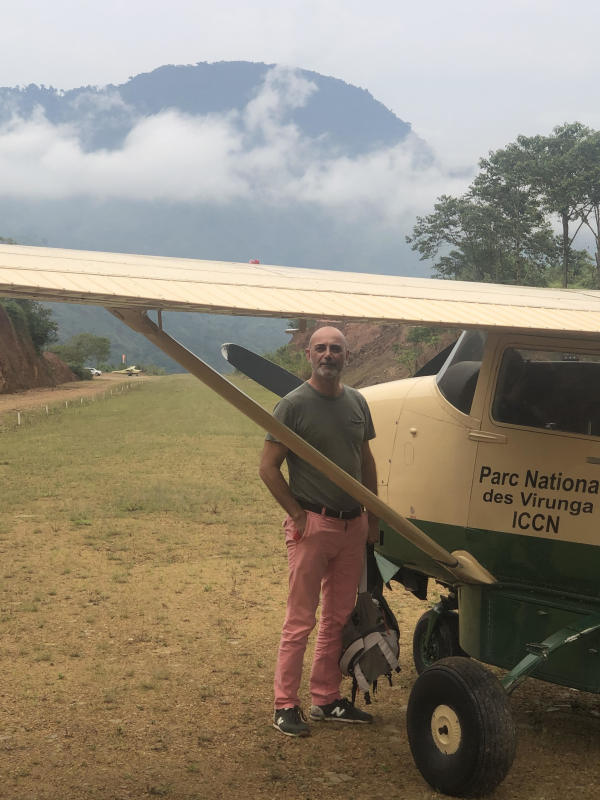
This isn’t to say that starting the farm in the Congo was easy, though.
Gouspillou described how there’s been fighting in this region long before he and Augusti brought their first container of ASICs there, and the fighting has only intensified since.
“I am supposed to go to Virunga next week, but I have to wait because there is a deep war in this region at the moment,” explained Gouspillou.
Despite the conflict, Gouspillou, Augusti and the two other team members that founded the Virunga farm have had notable success in the region. They started with two containers filled with 700 ASIC S9s. These machines have been powered by hydroelectric energy from a plant on the Luviro River, close to Ivingu, since that time.
Mining bitcoin with a low cost of electricity in the region quickly made the operation profitable, which not only made Gouspillou’s investors happy but Prince de Merode, as well.
Prince de Merode had invited Gouspillou and his team to Virunga to aid his work in preserving the park. The arrangement looked like this: Initially, Gouspillou and his team brought in two containers — one owned by BigBlock Datacenter and one owned by the park. BigBlock Datacenter paid the electricity costs for their container but managed both. (Now, there are 10 containers in the park, seven owned by BigBlock Datacenter and 3 owned by the park.)
The profits from the bitcoin mined by the park went/go to the park to help preserve it. The mining farm also began employing locals who would otherwise have to resort to burning trees in efforts to produce coal that they could sell.
The benefits of establishing this plant in the region are illustrated in a short documentary Gouspillou showed at Adopting Bitcoin El Salvador 2023 (1:29-7:05 in the following video):
More recently, Gouspillou and his team realized that they could use the heat produced from the mining to dry fruits as well as cocoa beans, which are used to make chocolate.
While the mining farm currently employs 15 people full time, the fruit and cocoa drying efforts have created another 50-60 part-time jobs for those living around the farm. Gouspillou sees the potential for these operations to scale up in the near future.
“With the fruits, we can imagine creating 100 to 300 jobs for people,” he said.
But in the breath after Gouspillou discussed the potential in the region, he also touched on the hardships, some of which have both been heartbreaking and have made scaling difficult.
Hardships
Since the onset of operations in the DRC, Gouspillou has lost a number of team members to both violence and acts of God.
One young man named Moise was killed and washed away in what Gouspillou described as “a rush of water that came down from the mountains.”
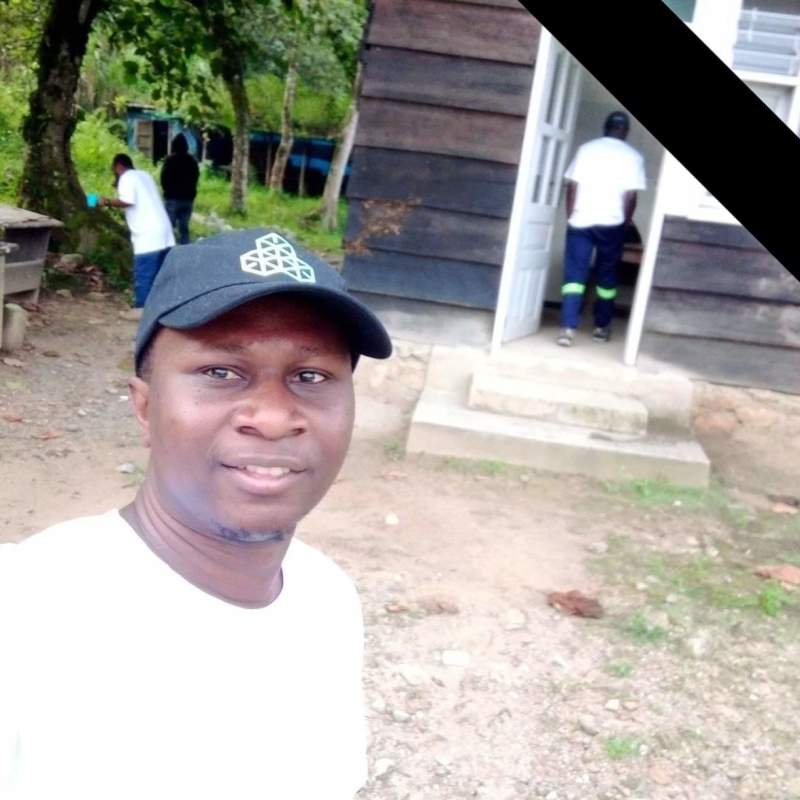
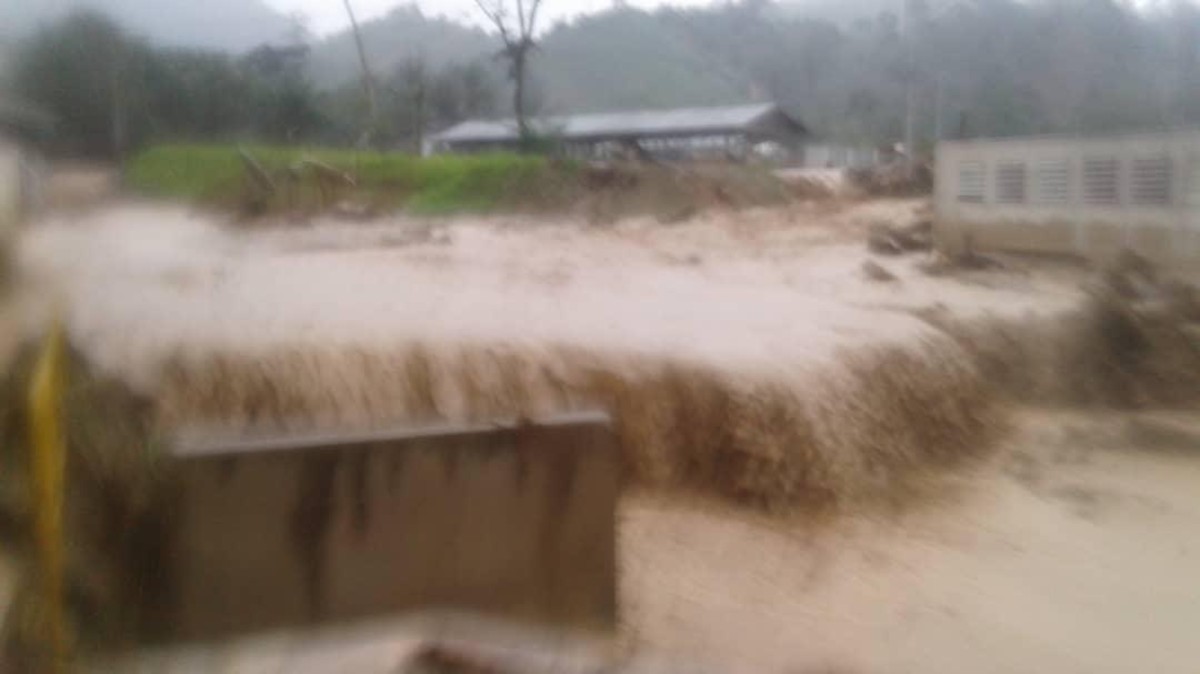
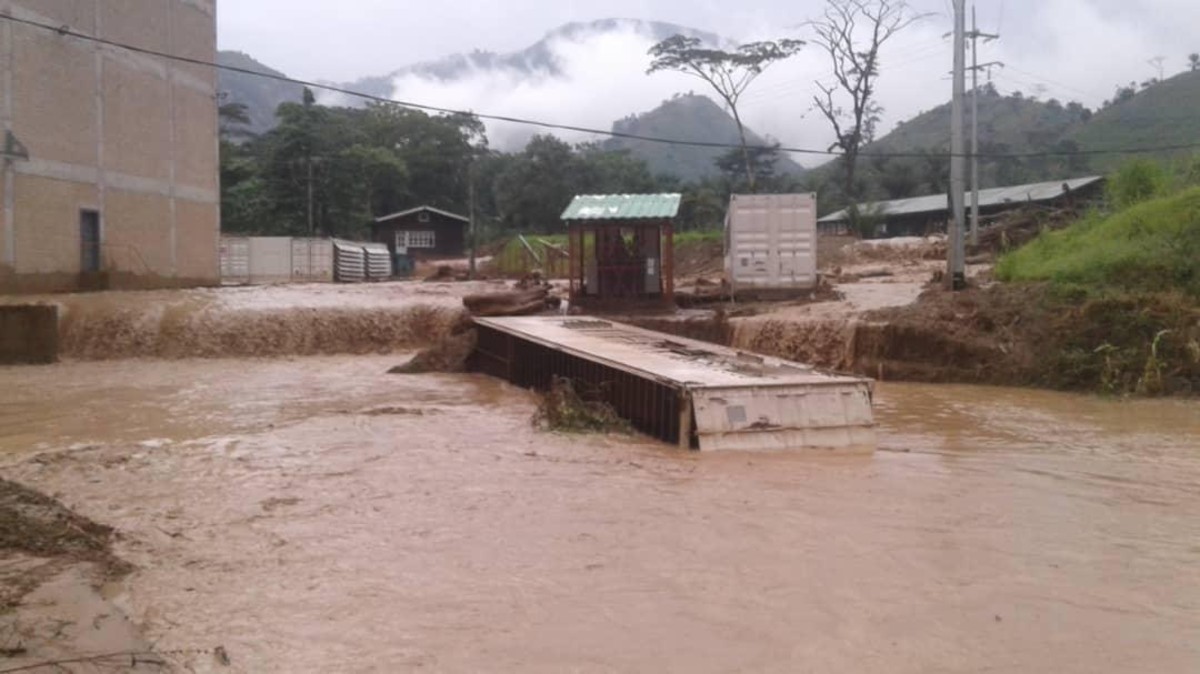
(Gouspillou and his team also had to repair the many ASICs that were damaged during this event, many of which were new S19s.)
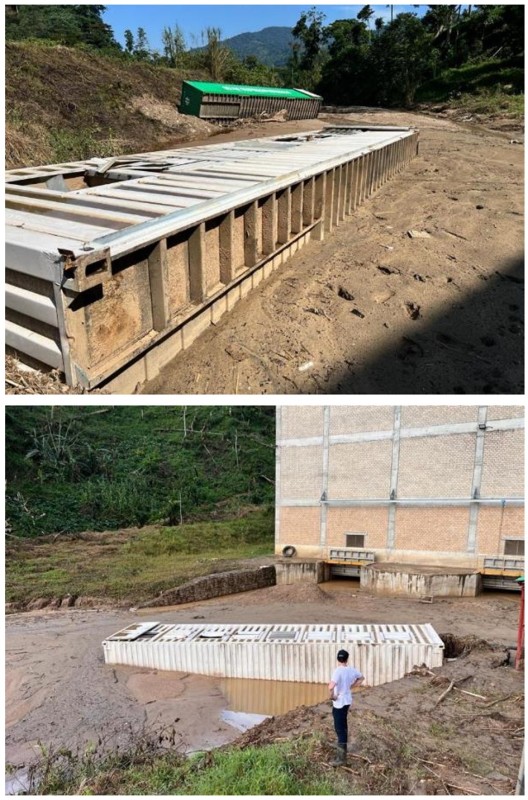
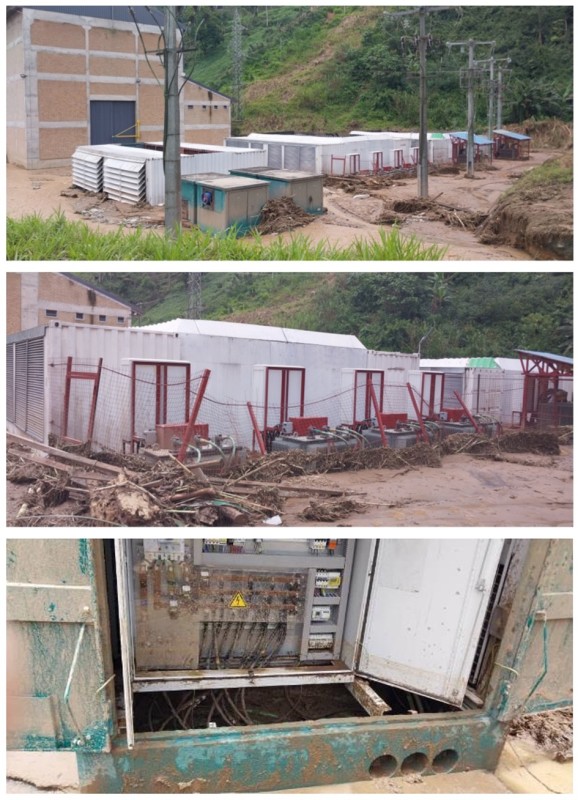
Then, in another tragic event just six weeks later, members of his team were ambushed, resulting in five deaths.
He described the situation mournfully:
“When the team members leave the farm to go back home, one of their options is to take a plane from the park,” he began.
“But sometimes they don’t have enough gas or kerosene, so we have to take a car 30 kilometers to get to a small airport in the jungle, and the road we have to take is dangerous,” he added.
“One of our technicians, the wife of the cook at the farm and the three others in the car were killed by the Mai-Mai (a rebel group in the region).”
Gouspillou and his team took these deaths hard. The technician, a young man named Jones who was also a manager at the farm, had been with the team for four years.
“He started at the lowest level and in three years became the boss of the farm,” said Gouspillou.
“We were very close to him. I knew him very well since the beginning; I hired him,” he added.
What is more, Prince de Merode has lost upwards of 30 rangers from his team that protect the farm due to violence over the course of the four years the farm has been up and running (and 200 since Prince de Merode has been the head of the park).
The violence is something that never gets easy to deal with, according to Gouspillou.
“You have something like 300 different gangs in the region,” he said.
“When we started in 2020, Emmanuel told us it had gotten calmer as compared to previous years. However, since then, it’s gotten worse every year,” he added.
How Bitcoin Mining Transforms Regions In Africa
Despite the challenging circumstances, Gouspillou remains optimistic. He’s seen the positive effects Bitcoin mining has had not just in the DRC, but next door in the Republic of the Congo, where Gouspillou and his team now operate, as well.
BigBlock Datacenter has built one of their newest facilities in Liouesso, a town in the north of the country. In this region, there’s hardly any industry, in part due to a lack of electrification, but that’s changing due to the mining operations.
“When you give money to the producer of electricity, you change the life of a region,” Gouspillou explained.
“In the town, they have a 20 megawatt power plant, but they only use two to three megawatts to feed the town. So, we built a 12 megawatt farm there,” he added.
“For the electricity provider, this is very important. We are a big client for him. He can now pull the lines to bring electricity to some small village because he has some money.”
The effect that Gouspillou described is the same as what’s happening in Kenya, Botswana and Malawi, the countries in which Gridless, another Bitcoin mining company, operates. Like BigBlock Datacenter, Gridless purchases excess power from hydroelectric power plants in rural Africa, giving energy providers a new stream of revenue, allowing them to expand their operations further into the countryside. This process gives some African communities access to electricity for the first time.
Gouspillou described how it’s virtually a no-brainer to take advantage of this excess power, as many hydroelectric plants in Africa are built to produce more power than they’re capable of dispensing.
“You have so many big hydro power plants, and they don’t have the lines to distribute this electricity,” said Gouspillou.
“In Cameroon right now, a big dam built by EDF (Électricité de France, France’s national power company) produces 80% more electricity than it distributes,” he added.
“When you create a big power plant, it’s normally too big — wherever you build it — because there’s no benefit to building too small. Building a 200 megawatt plant costs doesn’t cost double what building a 100 megawatt plant costs.”
Gouspillou went on to describe how he advised Nemo Semret, the first Bitcoin miner in Ethiopia, who now helps oversee the country’s large-scale, state-sponsored mining operations.
“I gave him some advice on how to make mining containers four years ago, and now the country is mining with 600 megawatts,” Gouspillou said. “There’s huge potential for expansion there, too.”
Beyond furthering the electrification of rural Africa, Gouspillou’s mining efforts are having other notably positive impacts on their surrounding communities, as well.
Community Impact
BigBlock Datacenter’s new farm in Liouesso currently employs 15 full-time technicians and 10 service staff including cooks, assistants, laundry staff, cleaning and grounds maintenance staff and drivers. And it plans to launch operations for fruit drying in the second half of 2025.
“There we have enormous drying capacity: enough to employ over 100 people,” Gouspillou noted.
More than providing community members with jobs, though, Gouspillou and his team have made other investments in the community.
A number of employees for the main farm in the DRC have children who attend a school in the region, which is five kilometers from the farm’s camp. BigBlock Datacenter has provided a Toyota bus to ensure school bus service since the first set up operations there.
The children and teachers once walked this distance every day.
To help lessen this burden, Gouspillou first lent the community members his car so that they could drive the distance instead of walking it. And, more recently, he’s brought in a bus to help transport the community’s residents to and from the school in larger numbers.
Furthermore, BigBlock Datacenter has also made improvements to the school itself.
“They did not have electricity in the classrooms, so we installed it,” said Gouspillou, who added that they’ve also financed the repainting of the school.
“These are very cheap investments and they make a big difference for the teachers and students,” he added.
Aujourd’hui, visite de l’école primaire.
y’a d’la joie. https://t.co/CIxiZw7BAJ pic.twitter.com/arUeBc5nji— Seb Gouspillou (@SebGouspillou) January 15, 2025
Translation: “Today, a visit to the primary school. There is joy.”
Gouspillou contextualized his contribution by sharing that other companies that have come to the region have made similar investments for selfish purposes, seemingly trying to downplay his contribution.
“Oil companies do it, too, because they have to compensate for the pollution they create by doing good deeds,” he explained.
The difference with BigBlock Datacenter is that it doesn’t burn gas or pollute the environment. It mines bitcoin using renewable energy. So, as I understand it, Gouspillou and his team are giving back because they think it’s the right thing to do.
It became clear to me that he’s developed deep bonds with the team members originally from the region as he shared a story about two of them who’ve done extraordinary work. Gouspillou refers to these two team members, Patrick Tsongo and Ernest Kyeya, as two of “the real heroes from Virunga.”
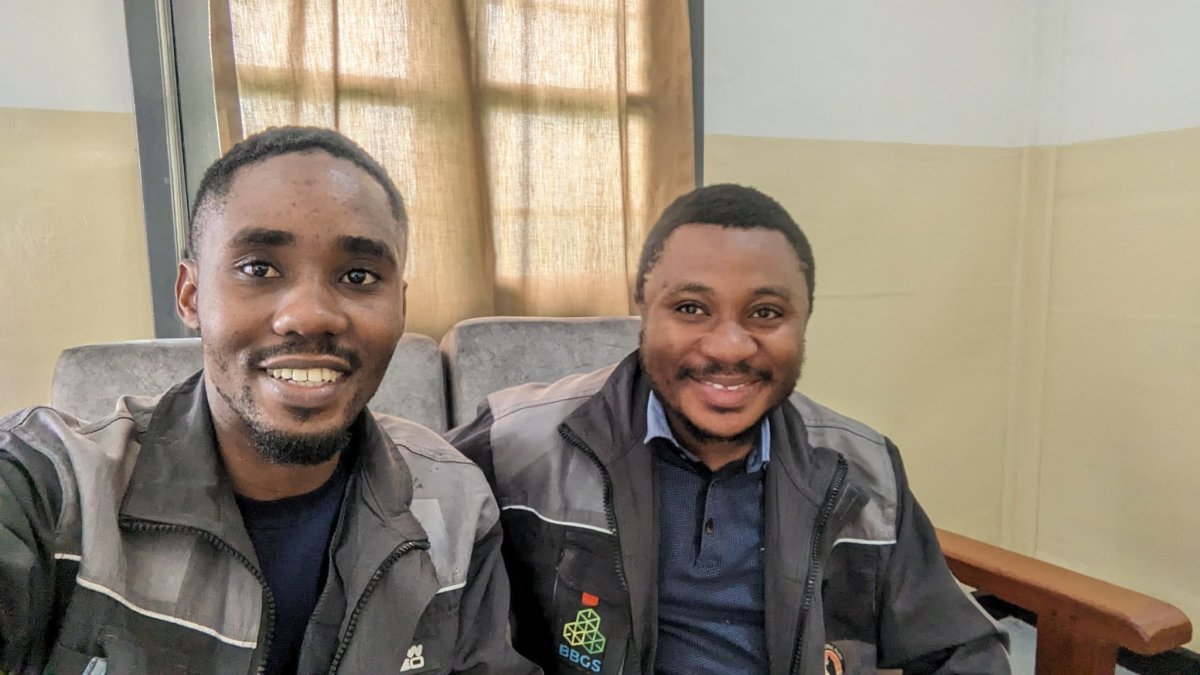
“Ernest has been the manager of the Virunga farm, and Patrick his second in command,” said Gouspillou.
“We employed them four years ago when they were 23 years old. Now they have the capacity to create a farm. They have the capacity to repair ASICs, which is valuable because even if our machines are under warranty, we can’t send them back because the chances they will get stolen in transit are high,” he added.
“They have the capacity to repair all kinds of issues. I think they are the best technicians in the mining world now.”
Ernest and Patrick are now launching the new farm in the Republic of the Congo, and they recently left the DRC for the first time in their lives to do so.
“Three months ago, we went to Pointe-Noire, a port by the sea in the Republic of the Congo, and it was the first time they saw the sea,” said Gouspillou. “They’re so grateful.”
Gouspillou also mentioned that they’ve become tried and true Bitcoiners, as BigBlock Datacenter has given them a bitcoin bonus each year, some of which they’ve held onto and used as it’s appreciated.
“At the beginning, they used to sell it,” said Gouspillou.
“However, they recently bought land with the bitcoin they’ve saved. So, now they’re crazy about Bitcoin. They love it,” he added.
The Future Of BigBlock Datacenter
Moving forward, Gouspillou and his team plan to continue to expand their operations globally.
They currently have mining projects in five African countries as well as others in Paraguay (where Gouspillou says it’s difficult to work because of the mafia presence in the country), Finland, Oman and the small one in Siberia they started years ago.
“We were the first miner in Oman, and I was the guy who convinced the government to start mining,” explained Gouspillou. “We started with two containers, and now the country has big miners with facilities that can mine with up to 300 megawatts.”
They also moved their headquarters to El Salvador six months ago, where they are incorporated as BigBlock El Salvador.
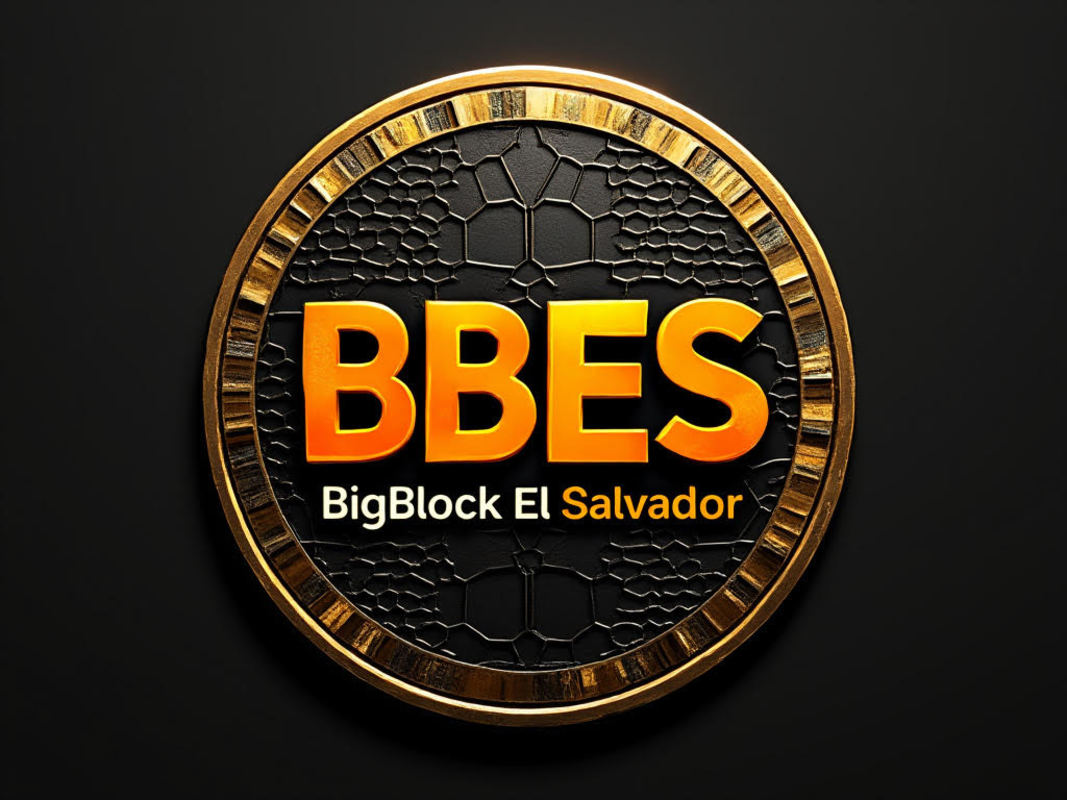
While Gouspillou and his team can likely expand anywhere from here, he shared that he prefers to focus on growing their operations in Africa, as he is most excited about what his team is working on in the Republic of the Congo right now.
Toward the end of my interview with Gouspillou, when I asked him how it feels to see his company grow to the point it has after starting the process in his late-40s, he chuckled before responding with the following:
“Maybe I was a little bit too old, but we had time to build something solid. Now, it’s only pleasure with this business.”
